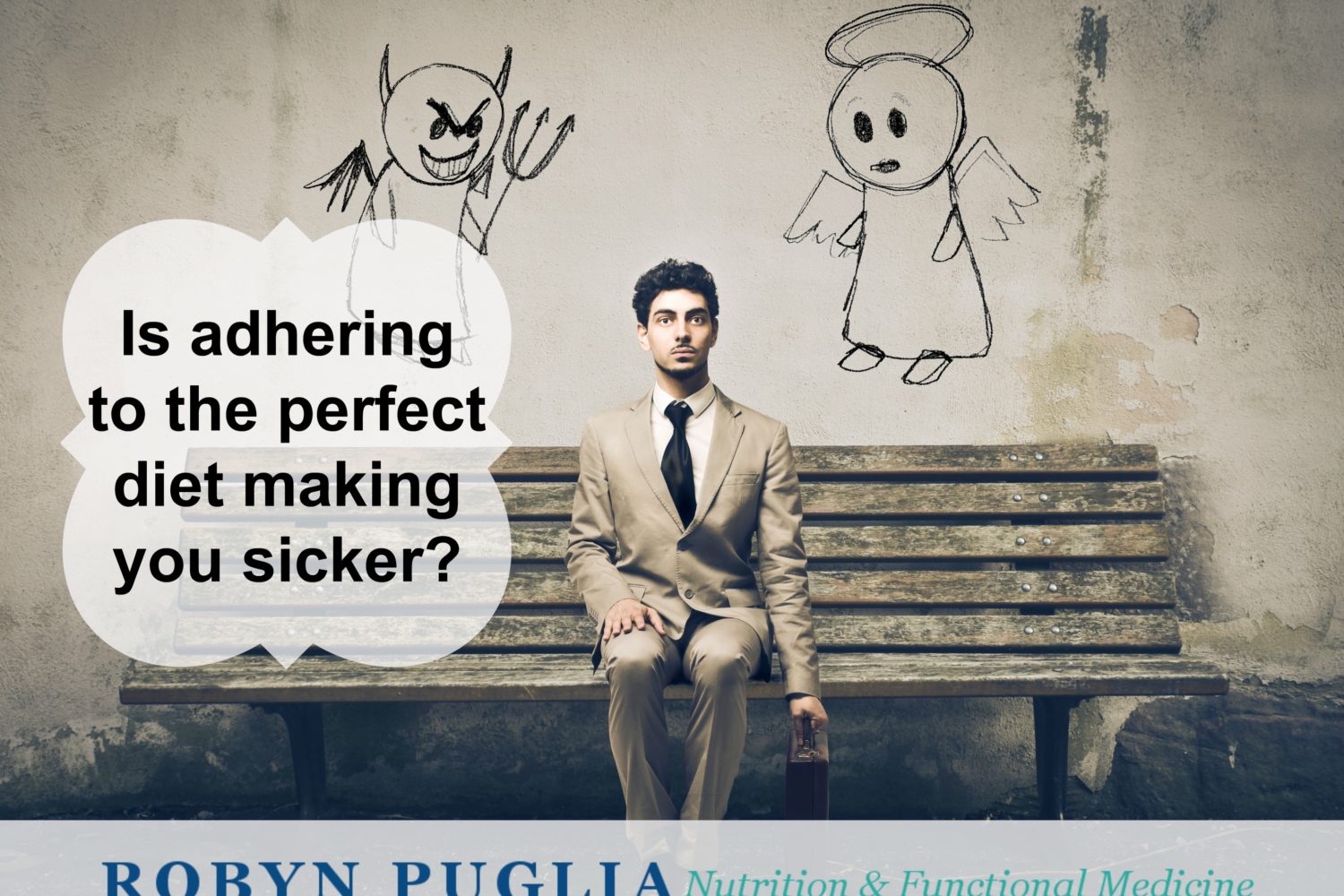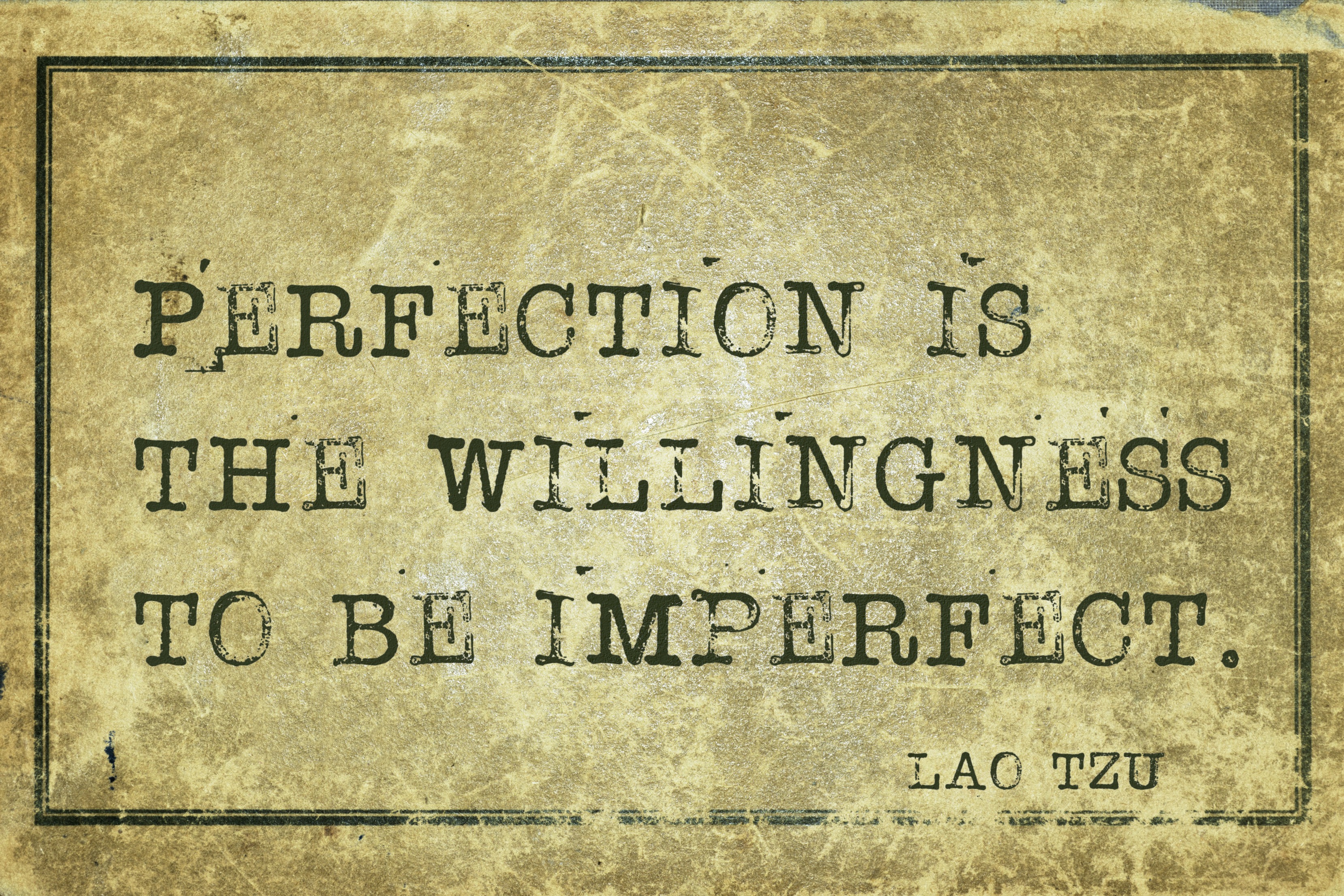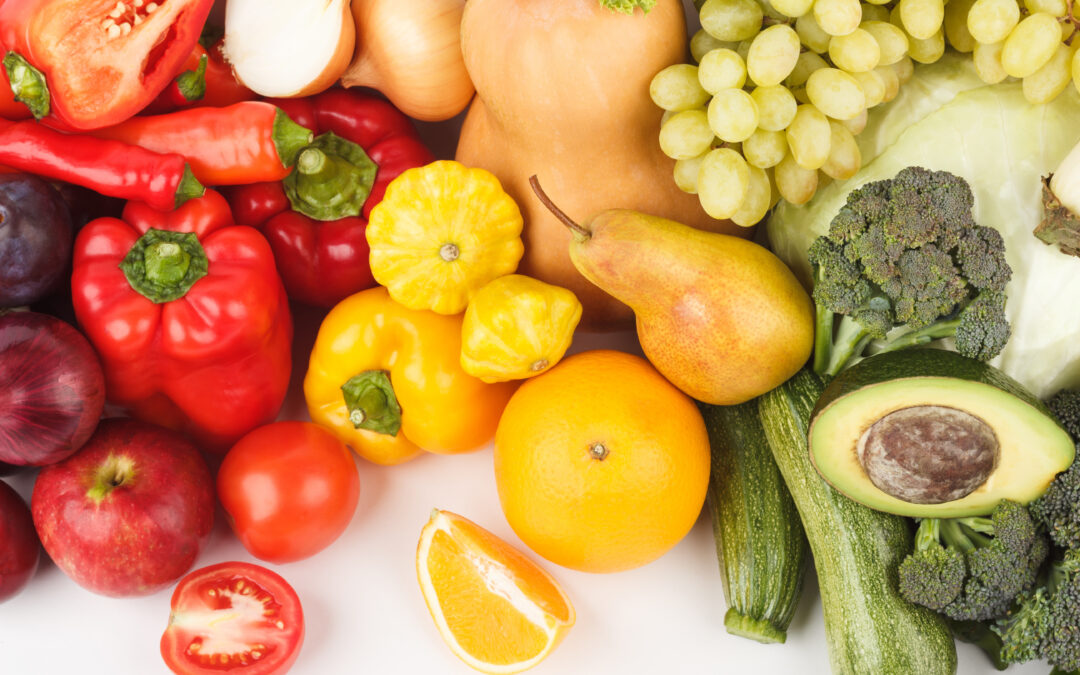Oftentimes I write a blog because I want to share science or information that I know, in a general sense. Other times, I write a blog post directly from an experience in clinic or because I find myself repeating some information regularly, and eventually click that this is a common theme among my patients. I wrote about the importance of setbacks in healing this way, and today’s post is the same. I hope that this speaks to you, if you’re struggling with this, and that you find it helpful.
Don’t let perfection get in the way of good enough.
The first time I heard anyone say this, it was Dr Tom Sult at a Functional Medicine module a few years ago now, when early into my studies for certification. And the truth is, it did not compute. I kind of mentally rejected it and said to myself something like: ‘ No, we must aim for the best’. The best protocol, the best adherence to the best diet, take the best supplements. Near enough is not enough.
As you can see, I completely misunderstood this simple sentence, and it took longer than I care to admit of the penny to drop.
Striving for perfection and doing your best are not the same thing.
Here is where I made the mistake. I confused perfection with doing one’s best. Perfection is rigid, and possibly unattainable. It doesn’t allow for any compromise or leeway. Striving for perfection, especially when that becomes a big focus, is actually really stressful, even if it feels normal to you.
Doing your best, on the other hand, is a different ballgame. It allows for constant re-evaluation of the tasks required, it allows us to accommodate various circumstances (because….life) and it helps us to create goals that move us forwards, while not hindering that forward trajectory with unnecessary self-criticism when the goal posts need to be moved.
Aiming to do your best in any given situation is healthy. Striving for perfection might actually make you sicker.
Good Stress, Bad Stress and Balance.
Making the best decisions you can, in any given circumstance is the healthiest thing you can do. There are so many factors that determine your health. People (including myself) get very stuck on the food and the supplements. And sometimes the testing. And this is not (good) Functional Medicine. Just focusing on those things misses some very important factors that help to determine health and illness. Stress is one of them. Family and social support and interaction is another.
Remember, that functional medicine takes the whole interconnected web of biological systems into consideration. It includes stress, relationships, spirituality and a host of less-physically-tangible environmental factors, because all of those things play a role, possibly an equal role, in the progression and promotion of our health.
The Mental, Emotional and Spiritual nodes of the matrix are right in the centre and this is not just a random graphic design feature!
A small amount of stress is normal and healthy. It motivates us to get up and keep going, and to achieve our goals. But overwhelming stress or long-term stress can end up having a corrosive effect on our health. It is a subtraction from our health equation. And if that subtraction becomes more than the additions of the food and supplements or other health-promoting activity, then this obviously is not helpful in achieving said health goal.
I never would have thought this 10 years ago when I started studying health, but it turns out that the body just doesn’t work in a black and white way. Very few things are just good or just bad. Turns out that too much of a ‘good’ thing, can be just as bad for you as not enough of it or too much of a ‘bad’ thing. Balance is key! Balance is paramount to healthy function in the body.
Here are some examples of when striving for absolute perfection, would be problematic:
In each of the following situations, there are plenty of opportunities for stress or bumps in the road. I am trying to provide some encouragement regarding making compromises in the following scenarios, but I also provide some tips to help you to stay on track as much as possible. Hopefully that comes across as balanced and not conflicting!
Travel.
Travel can already be stressful in and of itself. When you have a health condition that requires active management, it adds a whole new layer of complexity. You are away from your own kitchen, routine, familiar stores or food suppliers and also may have very little control over what there is available food wise. If you try to stick religiously to your diet in these circumstances, I am fairly sure, and I do speak from some personal experience here, that you will be miserable and not enjoy the travel experience much. My recommendation is to work out what the hard lines are (Eg: You have to be strictly gluten free). Work out what is possible and manageable for you to achieve. Stay somewhere self-catering if that’s at all possible. And let go of the rest. Enjoy the scenery, the conference, the family, the occasion and the break from your usual routine.
Read more about navigating travel here.
Big social events – Christmas, New Year, Birthdays.
Perhaps nowhere more than here do we see the emotional connection to food playing such a critical role. For better or for worse.
Christmas or Thanksgiving, or the equivalent in each country or culture (Rosh Hashanah, Eid, Australia Day etc), plus other big events in our social calendars (own birthday, father’s 60th, grandmother’s 90th, family wedding, that sort of thing) all tend to have a very strong connection between the food and the event (I was joking about Australia Day, but if you’re not Australian that may not translate). And the associated foods can evoke very strong emotions. They hark us back to childhood, to our families and loved ones, to strongly held and loved traditions.
Just imagine you are sitting down to a big, special family dinner and everyone has a plate piled high with all your favourite foods, including recipes that have been in your family for generations, that you remember your grandmother making when you were little. Things you look forward to all year. Now imagine that your plate has only lettuce, celery and plain chicken breast. Doesn’t really have the same emotional context does it. Of course this is a stark and exaggerated example I’m using, but you get the picture I’m sure.
I spend a lot of time in November each year, discussing this very subject with all my patients to help them to navigate the silly season. I try and have people work out for themselves, where their priorities lie. Where are the hard lines that cannot be compromised, and where are the grey areas, where the joy of sharing beloved foods can be indulged and given the same value as the nutritional value of the food.
Is there a way that you can adjust family recipes to a healthier version? Create dishes that you can all share and enjoy that won’t make you sick? It IS possible to make gluten and dairy free macaroni and cheese, or paleo-vegan pancakes that taste good and are a reasonable facsimile of the original. These foods might not be as strictly good for you as your usual food choices, You may not get near 10 servings of vegetables or even 2 of the 6 phytonutrient-colours that day, but I promise you the positive emotions that come from sharing a meal with family is very good for you and just as healing. And you won’t derail your health from making that compromise.
As a last small note, a caveat to this whole spiel. It’s also been a clinical observation of mine that for some people, suffering the consequences and symptoms that occur from deviating from their usual diet is more stressful than eating differently from the rest of the family. They would dread that meal and dread the days afterwards. If you are one of those people, then please don’t feel the need to dive into the tin of Quality Street with your Aunt Mary. Your situation is less common, and actually distinctly different than the point I am making about striving for perfection.
Smaller Social Events – Dinner at other’s houses, work functions.
These are events that may need to be navigated carefully. They are another example of a time when we aren’t in control of our food. But they are a key time that people tend not to speak up or advocate for their health choices because they don’t want to be seen as difficult, or to just simply avoid for the same reason. It can be quite fraught.
There may be quite a fine line here between appropriate compromise and too much deviation, probably depending on the frequency of the events. If you eat out twice per week and travel two weeks per month, this is going to be a bigger issue for you than someone who only has to deal with this twice per quarter.
Communication is essential. Be prepared to talk to restaurants ahead of time, and to have loving and friendly conversations with your family and friends about what you need as well.
My best two tips here to help you make the best decisions you can are:
Never attend anything starving. Eat something decent and healthy before you go. Even if it’s a proper dinner you’re going to. It will make it much easier for you to achieve point number 2.
Remember to just make the best decision you possibly can, given the circumstances.
Nobody makes their best decisions when they are starving, so try to avoid putting yourself in that situation. You will be much better able to eat just what you are able to and genuinely not care about the rest, and to focus and work or relax and enjoy the company, if you’re not really that hungry to start with.
Times of stress – New Baby, Taking care of a relative, people staying with you at home, times of acute illness – e.g. during gastroenteritis or a migraine.
Does this need more explanation? Trying to adhere is a perfect diet or health routine during times of increased duress or different physical need is actually not meeting your health needs. It’s sort of missing the woods for the trees. Self care is an important concept that, when you are striving to reclaim your health from chronic illness, includes a lot of attention to nutrition and can incorporate supplements, physical activity etc. But please, don’t try and cook yourself a complex meal if you feel like you’re being stabbed in the eye with a stiletto heel, you’ve just had an episiotomy, or you’re lying and groaning on the bathroom floor.
Good self care allows you to meet your broader needs during these times, making the best possible nutritional decisions with each meal or each day, but critically, not giving yourself a hard time for not being perfect.
My top tip for helping you to best navigate these situations is: Be prepared ahead of time. Ok, with gastro I can see how that might get you without notice, but for everything else, it will help you a lot to have some foods in the freezer so you can just defrost, heat and eat. And remember that your actual nutritional needs may change during the above times as well, you might need more starchy carbs, for example and a deviation outside normal boundaries might be an important adjustment to make.
Natural Tendency to Rebel!
When you place really severe limits and restrictions on yourself, especially when there is a lot of emphasis on restriction or will-power, a very natural and human reaction to that is to rebel. You are more likely to say F-it at a certain point, and have a big blow out or throw in the towel. You will push back far in the opposite direction. Human do much better, in my experience when there is more gentle fluctuation within a certain set of boundaries, than strict adherence to a hard line.
Keep the bigger picture in mind.
If you are a patient of mine, I may sometimes advise adherence to a restricted diet in order to try and achieve something specific, but it will only ever be for a limited time, and always with the understanding that if the stress of adhering to the guidelines we discuss is too great, then we’re not achieving what we need to and we need to change our strategy. We are always aiming for progress, not perfection.
My real feeling is that in the bigger picture, a healing diet must be focused focused on abundance and variety, on joy, not deprivation and limitation and strict adherence no matter what. In order to achieve a healthy emotional framework and environment for yourself, there must be a lot of love and forgiveness and tolerance involved. Lots of self-hugs and lots less self-criticism.
Another perspective from a guest expert!
I have asked my friend and colleague Thora Rain to contribute her thoughts and experience on this topic, as I thought her perspective would be helpful to a lot of you as well. Thora has kindly written a blog post to twin with this one, from a psychoneuroimmunology perspective, with strategy she uses in her work supporting people who are chronically ill.
Read her fantastic blog post Build your own Helpful Compass.
For healing, remember, don’t let perfection get in the way of good enough.
A few final comments:
- I am not talking about Orthorexia here. That is a different subject again, albeit with some familiar terrain.
- Dr Tom Sult wrote a wonderful book! I highly recommend you read it. It’s called Just Be Well.
- If you have any family favourite recipes that you’d like Sueson and I to give a healthy make-over, please let me know in the comments! I’d love to try 🙂
- If you’d like to learn how to lay the foundation for getting your health (and life) back where you want it to be, check out my Foundations of Health Program.
- If you would like to get in touch to organise nutrient deficiency testing or discuss how to address your on-going issues, please drop me a line here.
- And if you’d like to stay up to date with my new blogs, recipes and recommendations: Sign up for my newsletter!








